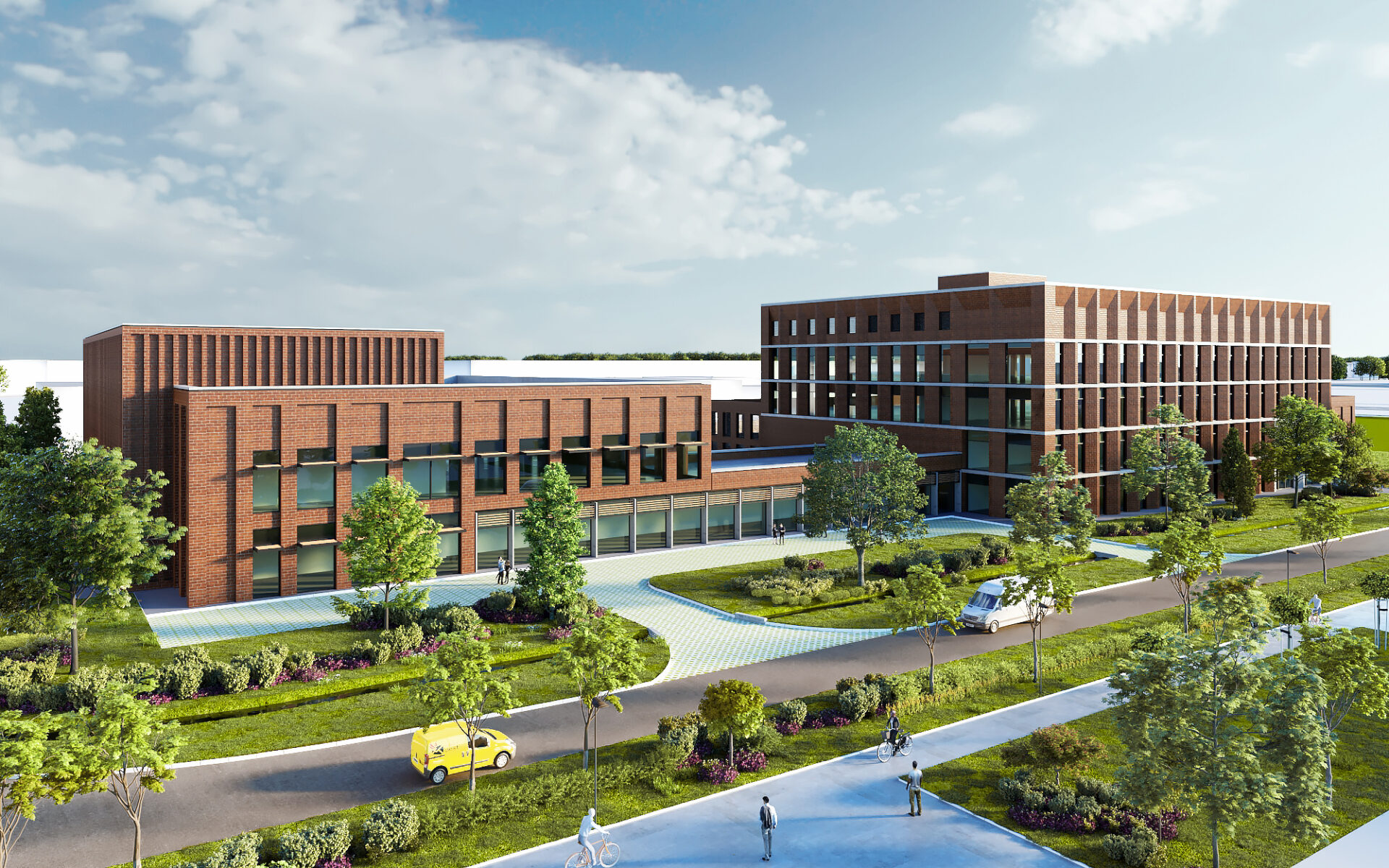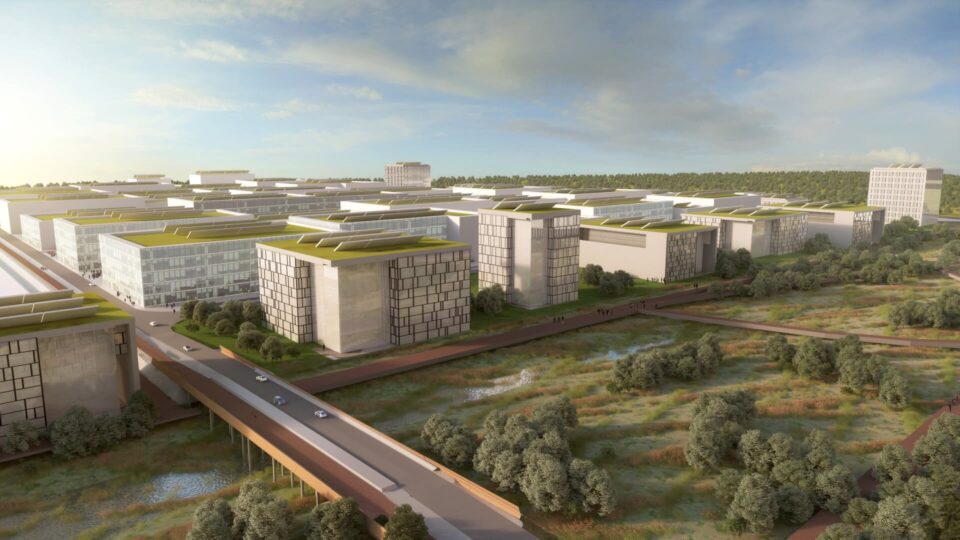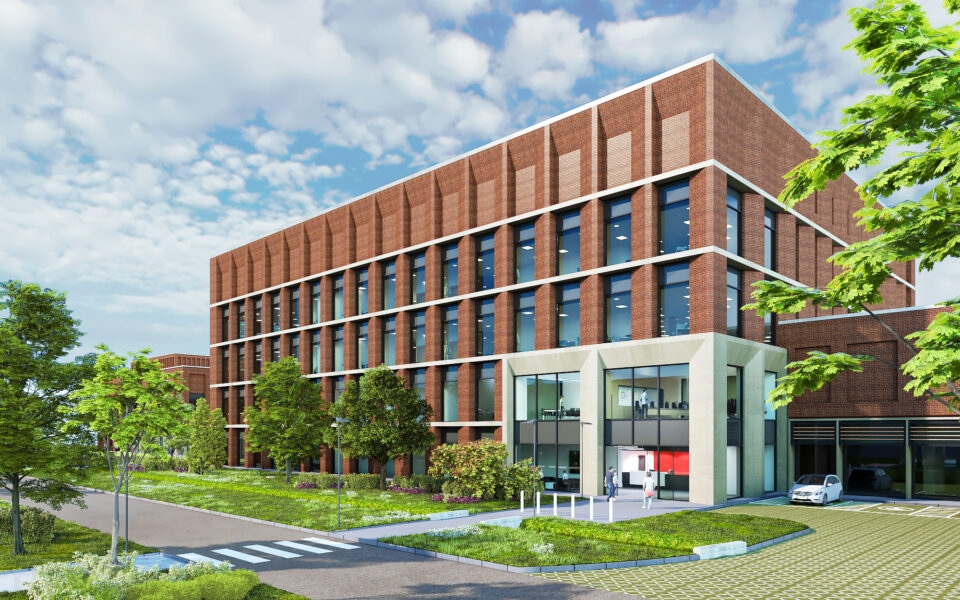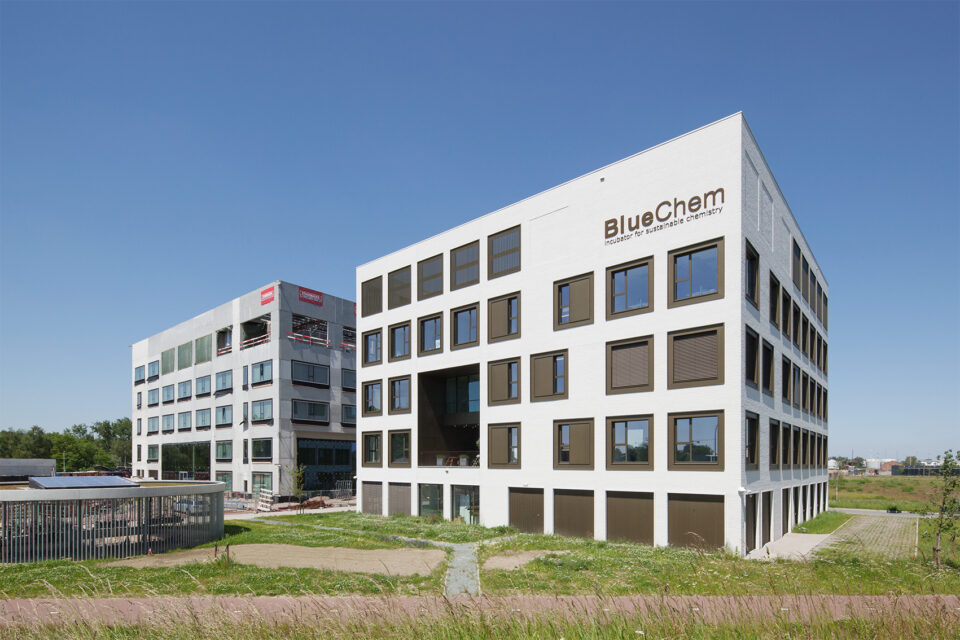Room for research

The idea behind science parks is that ecosystems take shape where knowledge-intensive companies and the university fertilise each other.
Stefaan Decroos, CEO of beMatrix
Flanders has internationally renowned universities and world-renowned research institutions: very strong partners to enable new developments in the private sector from the research world. The desire and will to cooperate are also there, as is government support. The only problem is that there is often a lack of space…
Science parks can provide an answer to this need for space. In Ghent, for example, the Ardoyen Technology Park and the campus site of the Eiland Zwijnaarde business park together form the Tech Lane Ghent Science Park, a cooperation project between UGent, the City of Ghent and PMV. Among other things, Tech Lane Ghent Science Park offers space for university spin-offs, start-up and growing companies and research centres for large international companies: a hub surrounded by knowledge-intensive production sites and innovative logistics within the larger Tech Lane Ghent zone.
Accidental contacts
The idea behind science parks is that ecosystems take shape where knowledge-intensive companies and the university fertilise each other. To best facilitate this, proximity is of paramount importance, says Steven Adons, principal investment manager at PMV. “Research in the Netherlands on science parks shows that for companies, proximity to research and knowledge institutions is the most important reason to locate somewhere. They want to be close to professors, researchers and students. This requires infrastructure that encourages collaboration, buildings with pleasant communal areas where people meet, where sporadic and chance contacts take place from which new initiatives and ideas can emerge. A building should really be set up for cocreation.”
Flemish biotech
That is certainly the case for the building that the Flemish Institute of Biotechnology (VIB) is building in the park. It will be a state-of-the-art bio-incubator that will also house VIB’s new headquarters. That institution is driving expansion in the Flemish biotech sector with several new biotech companies. The building provides an answer to the increasing demand for adapted lab infrastructure and will also become the new home for VIB’s support services. The bio-incubator will accommodate 10 to 15 start-up biotech companies. The proximity of knowledge institutions with the necessary expertise and talents should provide an excellent breeding ground for young start-ups. Together, VIB and PMV set up a project company to realise and operate the project to ensure the further embedding of the biotech cluster in Ghent. PMV coordinated the procedures and provided a subordinated loan to the project company, which will be responsible for construction and operation.
Chemistry
There is already an incubator in Antwerp, and it is for sustainable chemistry. BlueChem, also full of offices and labs, is there on the Blue Gate Antwerp business park, a public-private partnership between the City of Antwerp, Essenscia, VITO, POM Antwerp, DEME, Bopro, AG Vespa and PMV. BlueChem aims to guarantee the future of the chemical industry in Belgium by supporting start-ups and chemistry projects in sustainable chemistry with infrastructure, guidance and even funding. Contact is also key in this building: the central coffee machine should become the place to network (although corona unfortunately threw a bit of a spanner in the works). Meanwhile, the incubator is doing extremely well: at the end of last year, BlueChem had 12 start-ups and six large companies. Perhaps the incubator will already be full by 2023.
Synergy
In addition – as we speak – BlueApp is being realised. BlueApp is a pre-incubator of the University of Antwerp where companies and researchers will work on sustainable solutions for the chemistry sector, in order to accelerate the valorisation of UA knowledge and enable the growth of business and technology ideas in sustainable chemistry. BlueChem and BlueApp are located next to each other so that pre-incubator and incubator can achieve maximum complementarity and synergy. Structural works, led by Blue Gate Antwerp Building are ongoing. Completion is scheduled for June. At the start of the new academic year, BlueApp will open in October. After pre-incubator and incubator, Blue Gate Antwerp can also accommodate companies that have outgrown the lab level and want to spread their wings. For example, Peace of Meat – now based at BlueChem – will soon establish itself on the site.
Asset
Both for cities and universities, science parks and (pre-)incubators are a huge asset: a knowledge pool creates jobs, creates international appeal, sparks spin-offs, attracts talent to the university and grows new ideas for fundamental research within the university. Yet creating a science park or incubator is no easy task. Cities and universities have limited resources and real estate development is not a core activity for them. It is precisely in these areas that the private equity company PMV is at home. Not only does PMV provide financing, it also provides expertise for real estate transactions, governance and the legal side: in setting up the company, drafting contracts for construction and rental and making sound agreements between the partners. In Ghent, PMV is not only a partner in real estate development (through the nv Eiland Zwijnaarde with POM Oost-Vlaanderen, the City of Ghent and Alinso as co-shareholders), but also a partner in the long-term development of the science park (TLG Science Park) and co-developer of the R&D building infrastructure.
Visit the website of Tech Lane Ghent


